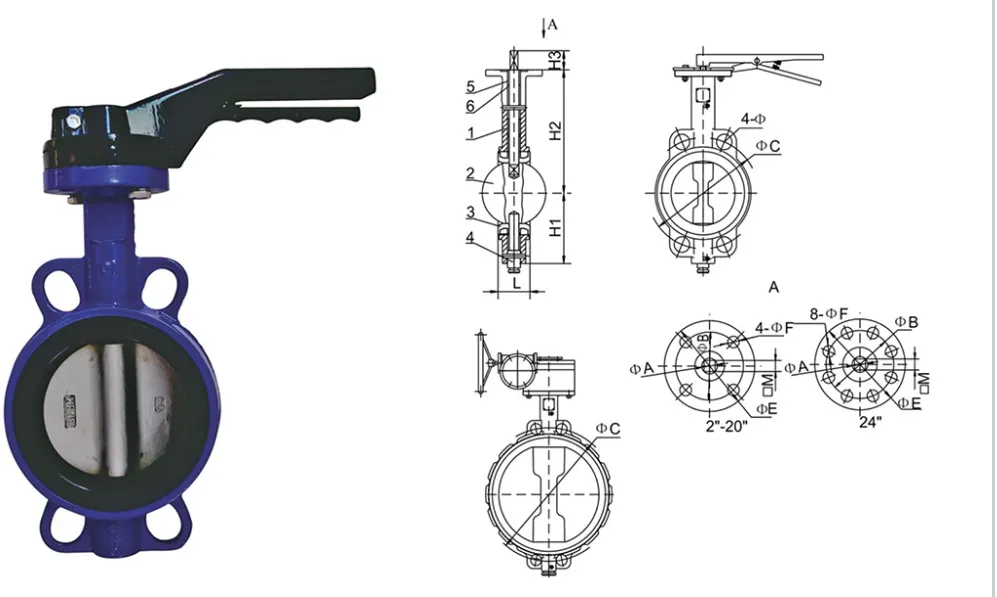9 月 . 24, 2024 07:13 Back to list
Optimizing Airflow Control with Advanced Valve Technology for Efficient Performance
The Importance of Air Valves in Modern Technology
Air valves play a crucial role in various industries, serving as essential components in pneumatic systems, HVAC systems, and even in automotive applications. Their primary function is to control the flow and pressure of air, ensuring that systems operate efficiently and safely. As technology advances, the design and functionality of air valves continue to evolve, making them indispensable in modern engineering.
One of the primary applications of air valves is in pneumatic systems. Pneumatic systems use compressed air to power tools and machinery, and air valves are critical for regulating this airflow. These valves allow for the precise control of air pressure, enabling operators to manage the power and speed of pneumatic tools effectively. Without air valves, pneumatic systems would face difficulties in maintaining consistent performance, leading to potential malfunctions and safety hazards.
In the realm of heating, ventilation, and air conditioning (HVAC), air valves are equally essential. They help regulate the flow of air in ducts, ensuring even distribution throughout a building. For example, variable air volume (VAV) systems use air valves to adjust the amount of air supplied to different areas based on demand. This not only enhances comfort for occupants but also contributes to energy efficiency. By optimizing airflow, HVAC systems equipped with air valves can reduce energy consumption, leading to lower utility bills and a smaller carbon footprint.
air valve

Automotive applications also benefit significantly from air valves. Modern vehicles use pneumatic systems in various functions, such as ride height adjustment and air suspension systems. Air valves enable drivers to adjust their vehicle’s performance based on their preferences or road conditions, enhancing overall driving experience. The integration of air valves in automotive technology exemplifies how these components are critical for safety, comfort, and performance.
The design and materials used in air valves have also evolved, leading to improvements in their durability and reliability. Advanced materials, such as high-strength plastics and corrosion-resistant metals, are increasingly used to manufacture air valves. These innovations not only extend the lifespan of the valves but also enhance their performance in extreme conditions. Additionally, the advent of smart technology is transforming air valve management by introducing automated systems that can adjust valves based on real-time data. This represents a significant leap forward in efficiency and precision.
Moreover, the maintenance and troubleshooting of air valves have become more manageable due to advancements in technology. Improved designs often come with features that make diagnostics easier, allowing for quicker identification of issues and reducing downtime. This is particularly important in industrial settings where time is money, and operational efficiency is paramount.
In conclusion, air valves are vital components in an array of applications, from industrial machinery to automotive systems and HVAC technology. Their ability to regulate airflow and maintain pressure plays an essential role in ensuring that systems function smoothly and safely. As technology continues to advance, the design and functionality of air valves will likely evolve further, enhancing their efficiency and impact on various industries. Their importance in modern technology cannot be overstated, and their continued development will undoubtedly support the growing demands of the future.
Share
-
Understanding the Differences Between Wafer Type Butterfly Valve and Lugged Butterfly ValveNewsOct.25,2024
-
The Efficiency of Wafer Type Butterfly Valve and Lugged Butterfly ValveNewsOct.25,2024
-
The Ultimate Guide to Industrial Swing Check Valve: Performance, Installation, and MaintenanceNewsOct.25,2024
-
Superior Performance with Industrial Swing Check Valve: The Essential Valve for Any SystemNewsOct.25,2024
-
Industrial Swing Check Valve: The Ideal Solution for Flow ControlNewsOct.25,2024
-
You Need to Know About Industrial Swing Check Valve: Functionality, Scope, and PerformanceNewsOct.25,2024